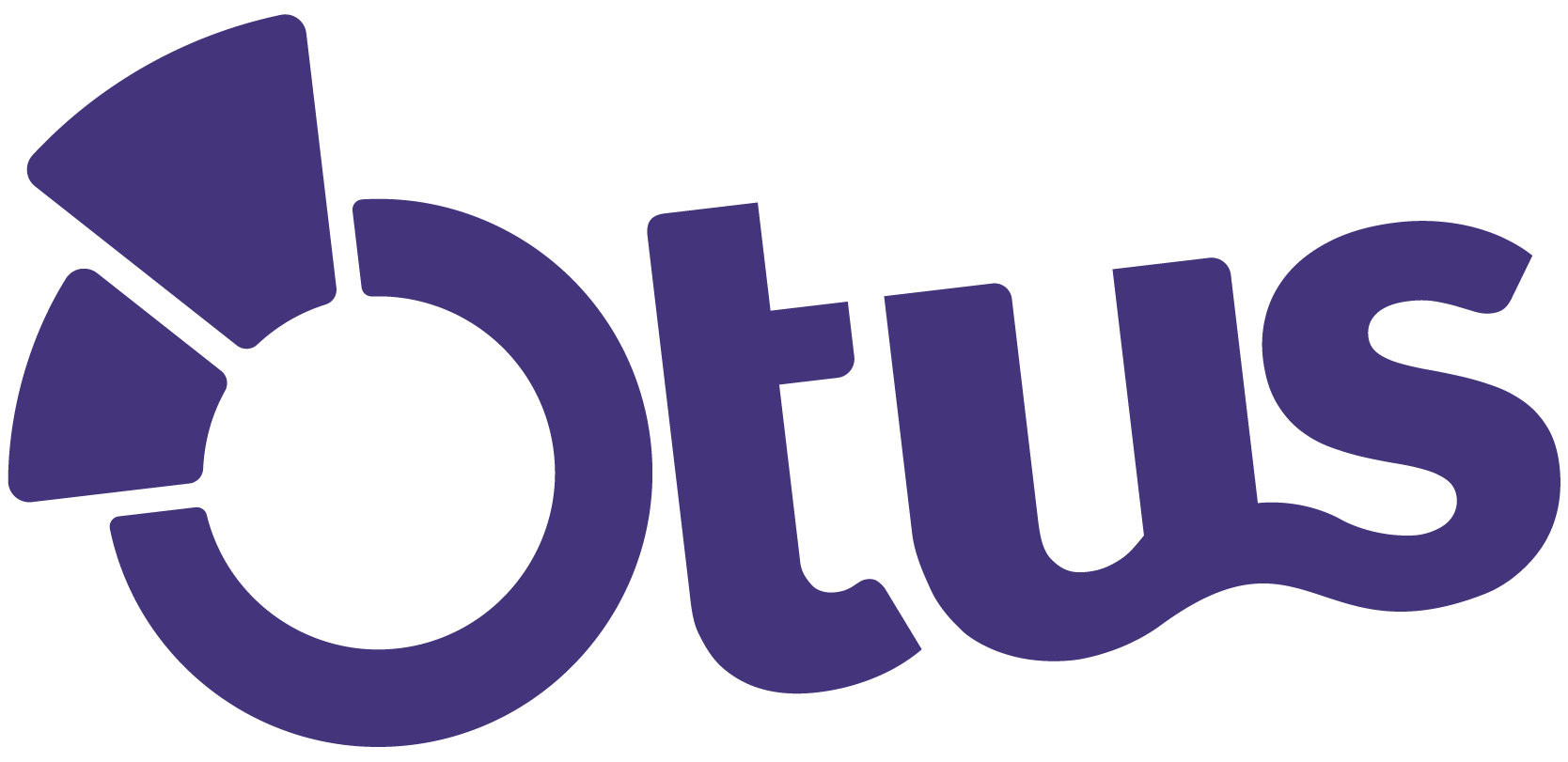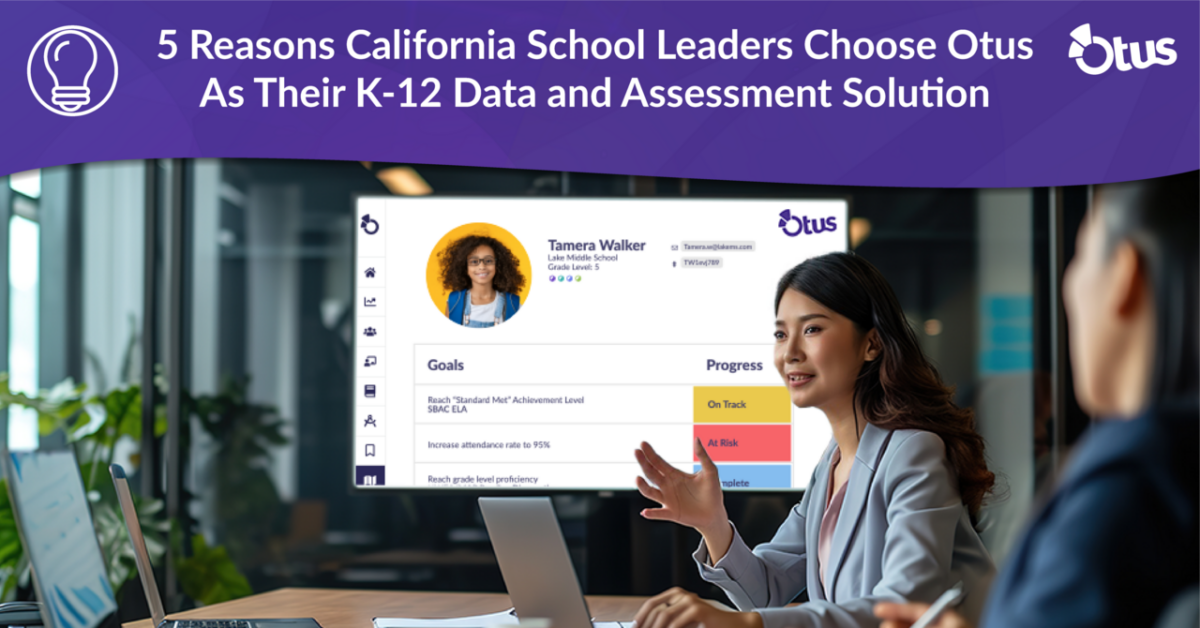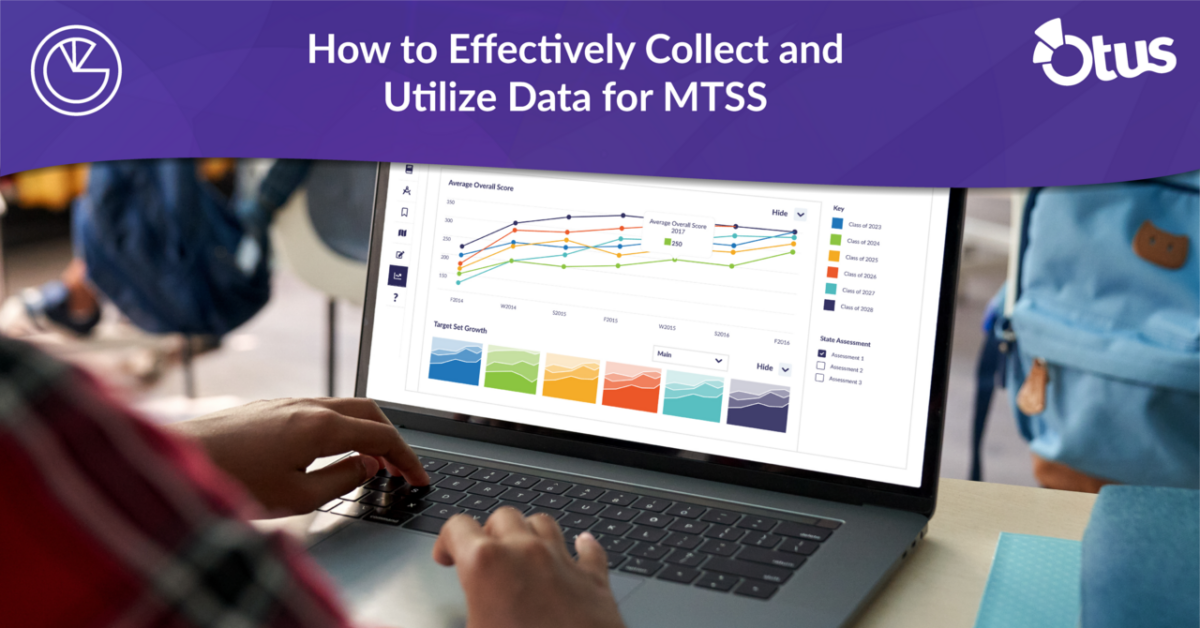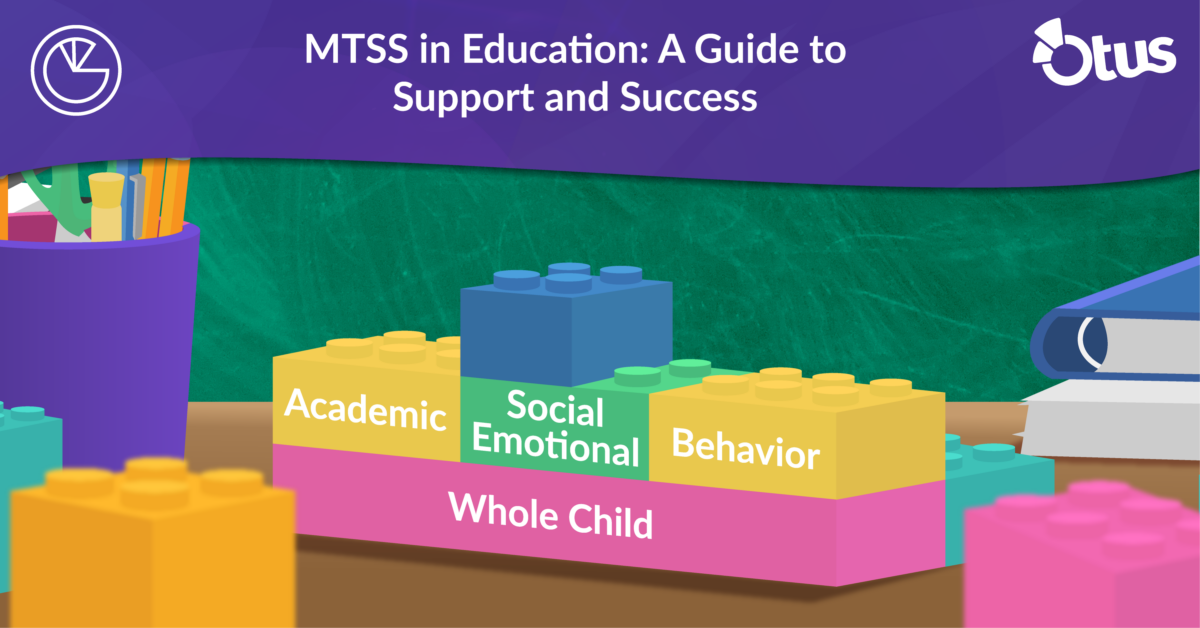California educators face the challenge of managing an abundance of student data and assessments, oftentimes spread out across multiple platforms and spreadsheets. Otus simplifies the way educators make data-informed decisions by bringing everything together in one place. By aligning with California’s educational standards and accountability requirements, Otus helps school leaders effectively track student progress, meet state benchmarks, and make informed decisions to improve educational outcomes.
Otus serves as a valuable partner to California school leaders and professional learning communities (PLCs), providing the insights needed for baseline and annual data updates to their district’s LCAP in the Conditions of Learning, Engagement, and Student Outcomes goal areas. The real-time data insights Otus provides can also be used to guide the future actions administrators and PLCs need to outline as part of the LCAP process.
This article outlines five key ways Otus can support California schools and demonstrates how evidence in Otus can be used for updates to your school or district’s LCAP.
1. Assessment and Data Analytics
Otus provides robust assessment and data analytics tools, allowing educators to visualize data from all of their existing sources side-by-side with data from assessments given in Otus.
When all assessment data exists in a single tool, it’s easier to monitor student progress, identify areas of need, and adjust instruction accordingly.
School leaders and PLCs can leverage Otus as their “hub” for the following types of data:
- State and National Assessments: Data from Smarter Balanced, California Science Test, ELPAC, California Alternate Assessments (CAAs), NWEA MAP, Renaissance Star, FastBridge, and more.
- Curriculum Assessments: Otus offers ready-to-use assessments from K-12 programs such as Amplify, Illustrative Math, Cengage National Geographic, and more, streamlining assessment and grading.
- Custom Assessments: Educators can create and administer assessments aligned to state standards, providing transparency around student progress toward learning standards.
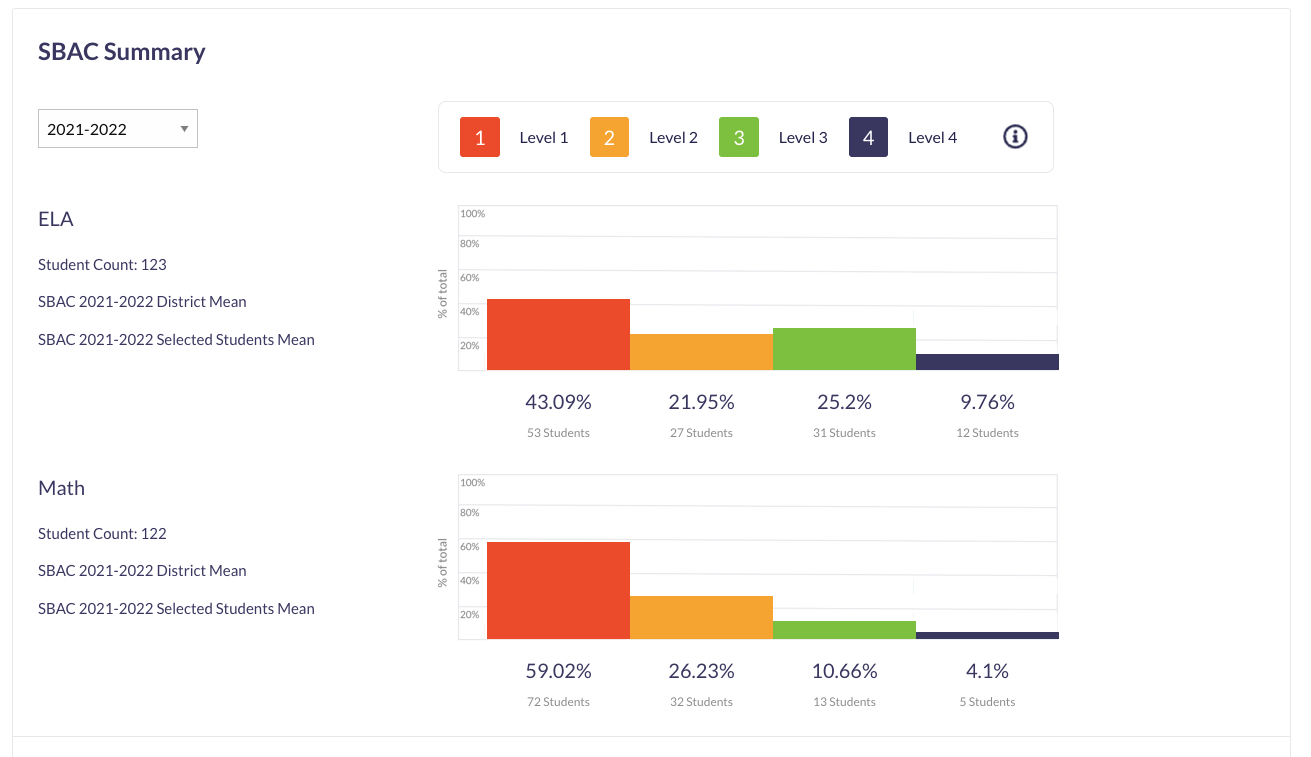
2. Standards-Based Instruction
Educators can deliver engaging assessments aligned to learning standards, including:
- California’s academic content and performance standards
- Next Generation Science Standards
- English Language Development Standards
Student progress toward learning standards is available in an interactive gradebook that can be customized to fit any district’s grading model, supporting standards-informed teaching and learning.
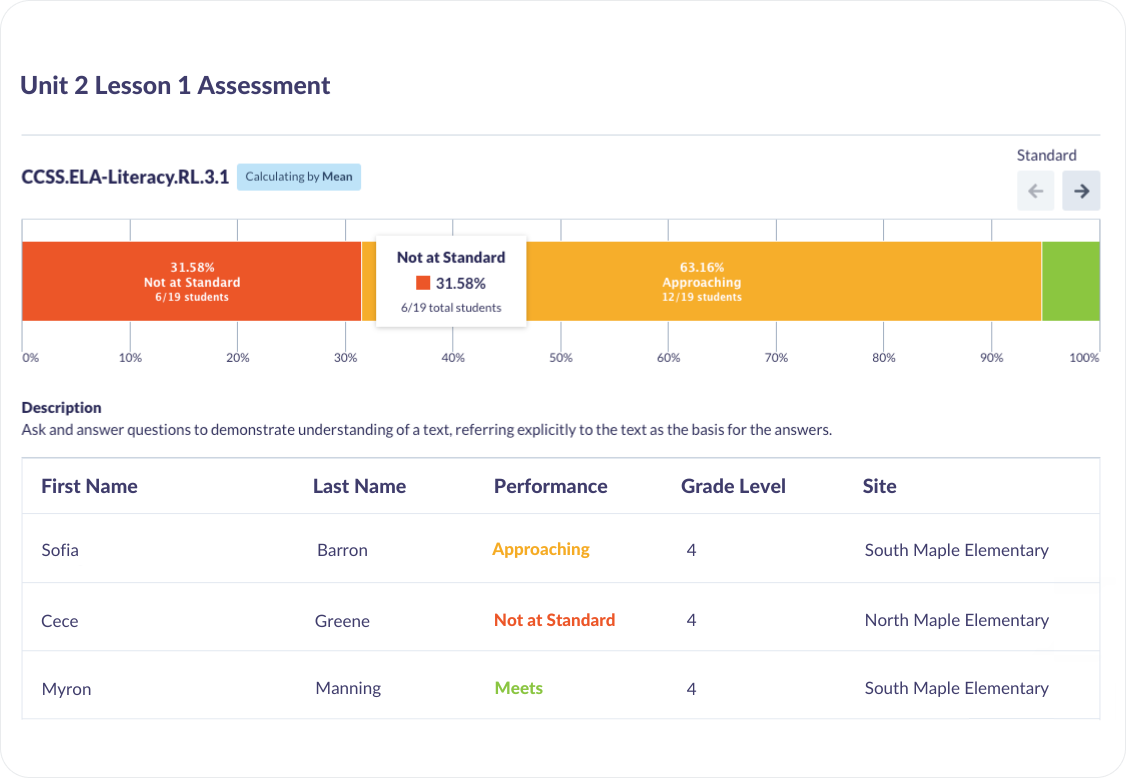
3. Intervention
Otus allows school leaders and PLCs to quickly identify students in need of intervention. Performance can also be monitored by student group using custom demographic data, making it easier to support at-risk students and those identified in the LCAP (foster youth, English Learners, and low-income students).

Otus Plans offers data that can then be used for students needing additional support or to implement a Multi-Tiered System of Supports district-wide. Plans allow educators to set achievable milestones that guide students on a path toward academic, behavioral, or social-emotional goals.
Collaborative plans can be used to drive student growth in:
- Academic skills like reading and math
- Social-emotional learning and behavior
- College and career readiness
- Attendance and engagement
- and more
Educators can connect a student’s progress monitoring plan to their data from local benchmarks, such as STAR or any third-party program, so the data automatically populates in their plan.
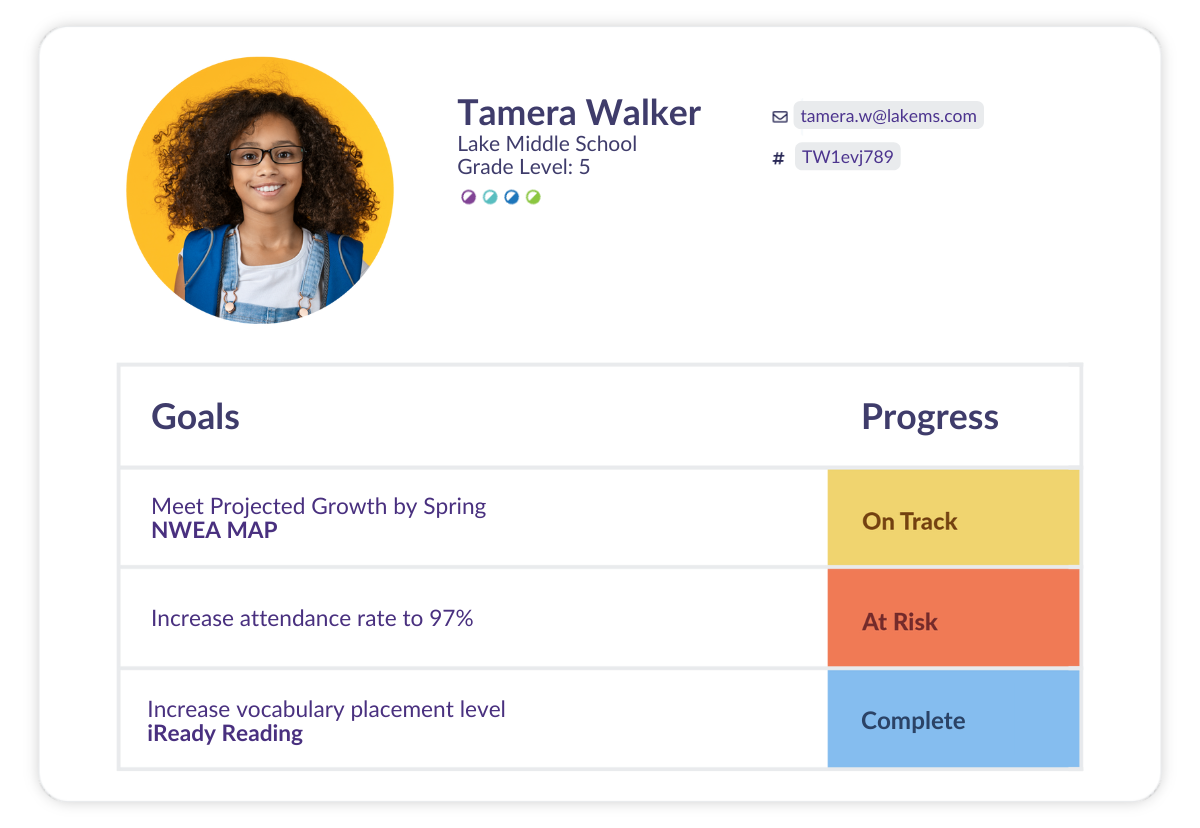
4. Communication and Collaboration
Otus has the tools for communicating with families, including simple ways to share student progress, keeping them engaged in their student’s learning. Educators can also collaborate with colleagues through shared notes, plans, and data insights within the platform.

5. World-Class Support and Training
When you purchase Otus, you not only gain access to an award-winning student data and assessments platform — you also get world-class support from a team of former educators every step of the way.
Our support includes:
- Custom implementation plan.
- Dedicated partner who is with you throughout your Otus journey.
- Virtual and/or in-person training.
- Otus’ On-Demand Video Library.
- Support response time of under 10 minutes.
- Access to a community of Otus users.
When you choose Otus, you can expect smooth and efficient support so you can focus on what matters most — your students.
Summary
Through its assessment tools and integrations, Otus provides a comprehensive view of student performance for educators and families. Otus helps educators implement and assess students’ progress toward California state standards, while also providing baseline data and annual outcomes needed for your LCAP reports. Furthermore, Otus allows school leaders and PLCs to quickly identify students needing intervention and monitor performance by student group using custom demographic data, thus supporting at-risk students, including foster youth, English Learners, and low-income students identified in the LCAP.
